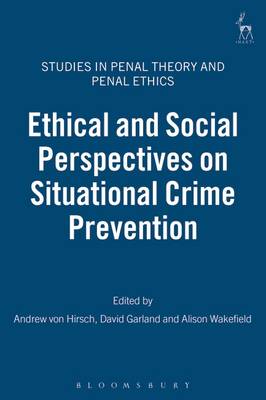Situational crime prevention has drawn increasing interest in recent years, yet the debate has looked mainly at whether it 'works' to prevent crime. Little attention has been paid to how it alters conceptions and strategies of crime prevention in modern society, and to the ethical questions concerning its potential impact on freedom and privacy. This volume aims to address the ethics of situational crime prevention. Are situational crime prevention strategies likely to constrain unduly people's freedom of movement? Do such strategies involve an intrusive scrutiny of people's everyday activities? Can ethical principles be developed that would help distinguish acceptable from unacceptable forms of intervention? The second issue concerns the place of situational crime prevention within criminology. To what extent does its emergence represent a basic shift in thinking about the nature of crime, and about prospects and strategies for dealing with it? To what extent is crime being treated as a 'normal' risk to be managed? How far does situational crime prevention place responsibility for crime prevention beyond the state apparatus to the organisations and institutions of civil society?
What are the social and political implications of doing so?
- ISBN10 1841131717
- ISBN13 9781841131719
- Publish Date 21 December 2000
- Publish Status Out of Print
- Out of Print 13 March 2008
- Publish Country GB
- Publisher Bloomsbury Publishing PLC
- Imprint Hart Publishing
- Format Hardcover
- Pages 240
- Language English
